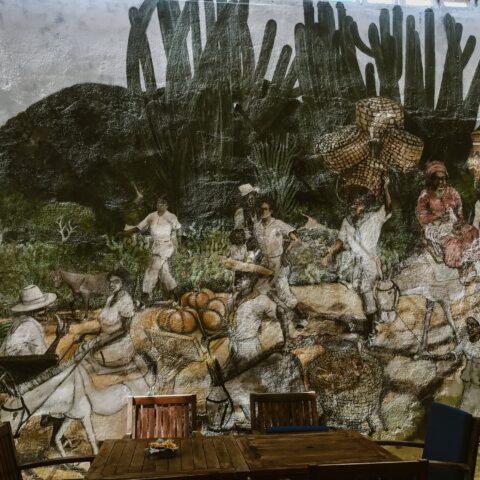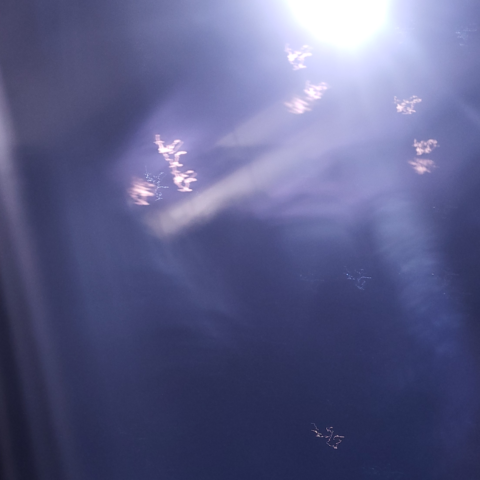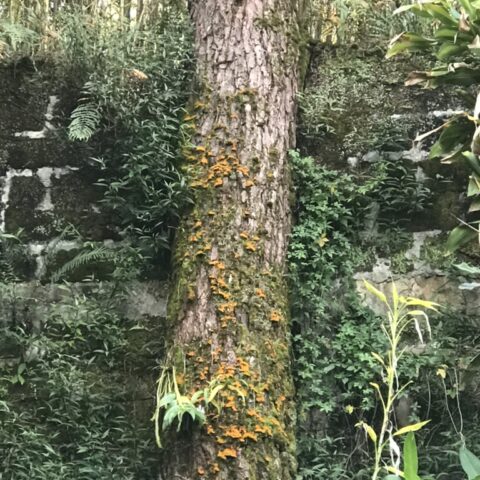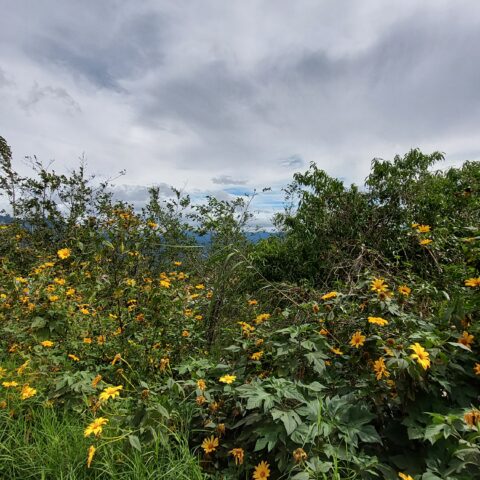Photo: Julia Javier
By Julia Javier
The reality I’ve grown accustomed to is not the reality of many others and took time before I realized that it has been a barrier in my relationship with the environment. As I grow older, I’ve learned to appreciate and be grateful for the fact that I’ve always been given a choice by my parents. My family has always taught me to reach for the stars, that the sky’s the limit, that possibilities are endless. I never realized the power of having a choice until I stepped out of the bubble my family had protected me in. I was inspired to write this piece upon some self-reflection—as much as I want to think I’ve lived a simple life, I haven’t. Unlike many, but like some, I’ve been raised comfortably in the city, only a part of the ‘bubble’ that was my reality. Which had become a barrier between my relationship with nature and the actual reality of the world.
When my eldest sister brought me to the glistening ocean, I splashed my face and shouted “Manang (Illongo for older sister)! You didn’t tell me the water was salty!” Still embarrassed, I remember that story every time I go to the beach because from that little girl who didn’t even know the ocean was salty, I find myself drawn and recharged by the ocean. Life has managed to constantly pull me back into nature—even in the simplest of ways—being just completely engrossed at the sight of coral reefs or even a small school of fish, finding the littlest bit of nature to indulge myself in, listening to my parents’ stories of their diving days, or even watching documentaries of the deep. I could never understand why coming home from a beach trip never felt like coming home; it never surpassed the level of comfort I felt as compared to when I first stepped into the beach, when I dive right into the water and everything else blurs.
City after City
Growing up in Metro Manila the closest I got to nature was our village park or Ayala Triangle; and like many schools we had immersion several times in high school, and I couldn’t help but wonder, when did we get so engrossed in this complex idea that luxury and wealth was measured by our monetary value rather than our connection with nature? If you look back at our country’s history, we have always had that connection with nature—a deep rooted relationship. We’ve gotten engrossed in working towards globalization and development that we never stopped to question at what cost?
When travelling to the province, where you’re surrounded by the open water, cool breeze, and trees becomes your ‘escape from reality’ it makes you question when that stopped being our reality. As a country and society, we have progressed in more ways than one, but somewhere along the path of progress and globalization, our relationship with nature took the backseat. We’ve gotten so engrossed in urbanization and globalization that we’ve strayed farther away from our traditional identities as Filipinos—farmers, fishermen, indigenous tribes, etc. experience the climate crisis the worst, while those who contribute to the climate crisis the most are living within the comforts of their concrete walls.
It’s not just people’s jobs… it’s also thousands of years of culture and history that we’re losing.
Xiaojun Wang, writer, environmental activist, founder of the non-profit People of Asia for Climate Solutions, and Harvest Moon contributor
We have unconsciously strayed so far to the point that our relationship is limited to what we see on our phones; living through the lives of people who do have a deep-rooted connection with nature. With the intention of connecting us, social media has made me feel more disconnected than ever at times. In recent events, seeing how our countrymen were being affected by the past typhoons—nature’s response to our selfish actions—we’ve used social media as a medium for donation drives, education and awareness, as well as a news source. Many of us in the city and in the minimally affected areas, our initial response to these disasters is to donate relief goods to the different organizations and go back to our daily lives that contribute to the frequency of these disasters.
Only when we really form a relationship with nature would we be drawn to care for it.
Aina Martin, an environmentalist from Silay City
I can only speak on behalf of someone who was raised in the city, but I was able to talk to someone who had the best of both worlds—not Hannah Montana—but a Rockstar in her own way, my cousin, Aina Martin who lived in Silay City, Negros Occidental until she moved to Metro Manila. Suddenly finding herself surrounded by buildings in every corner instead of sugarcanes and trees, she never realized what she had until it was gone. As cliché as it may sound, you become somewhat desensitized being surrounded by it, understanding its benefits, its life, which unconsciously strengthens your relationship with it. While others have taken for granted its generosity, beauty, and presence. Most of the people who grew up in the city don’t have that deep rooted connection with nature since it’s not the environment we are exposed to on the daily. Those who speak on behalf of nature emphasize that nature gives us everything we need and more, yet all she asks for in return is that we care for her.
[The coal mining industry] has taken away the heritage that we have got from thousands of years ago, and at the same time, it has taken away the future that people should have because future generations could very easily make a living from tourism… based on culture and heritage.
Xiaojun Wang
Hope in Uncertainty
With the ongoing pandemic, social catastrophes, environmental disasters, etc. have proven that anything is possible. Throughout the months in lockdown, more people have been growing their own vegetable gardens, becoming “plant parents”, and were just generally being drawn to the little joys the world had to offer. Without the distractions of urban living, almost unable to bear the cabin fever, many were drawn to care for nature, baking, cooking—generally drawn to the simplicity of life. I’ve come across many people who have learned to appreciate the small things in life, the things right in front of us instead of always looking forward to something else, searching beyond for our happiness, being content with what we already have. If we would just pause and look at it all, how many of them do we actually need?
But uncertainty is not to be feared. She is our friend, our companion in struggle. Uncertainty is integral to hope, as the writer Rebecca Solnit reminds us often. Uncertainty simply means the bad guys have not won yet and that we still have a world—a common future—to win.
Renato Redentor Constantino
As I begin to discover new things about the world and myself, I find I’m navigating backwards in time. Instead of striving for bigger, brighter, and bolder things in life, I yearn to rebuild that relationship with nature. It was never gone, but it’s fleeting. There is still time to do so, but soon enough, the climate crisis we’ve caused won’t give us that opportunity anymore. With everything happening in the world, I cannot imagine what could possibly happen once we—as a society—have lost our connection with nature, when we’ve selfishly prioritized our own relationships and success over the natural world. Without the environment, everything we own, everything we are would be pointless if we don’t have a world to live in. We need to be reminded of our roots, our history—we need to be reminded of what keeps us grounded.




